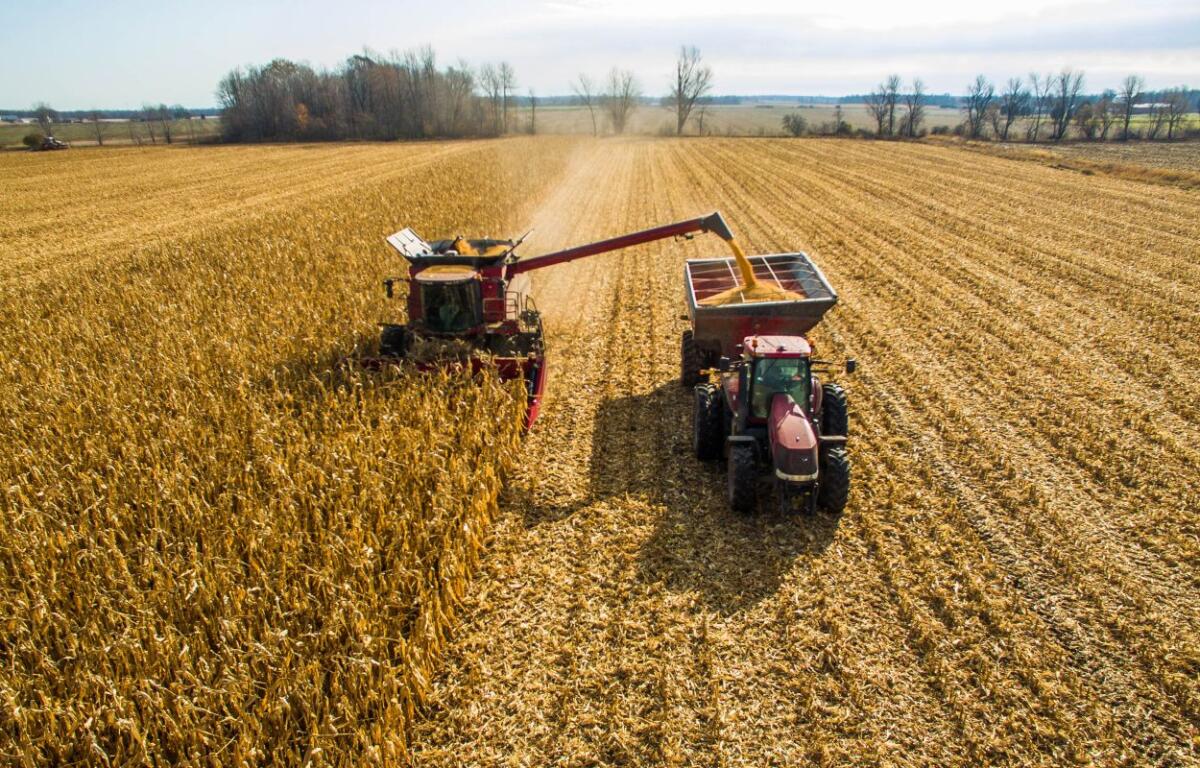Springfield, IL (CAPITOL CITY NOW) – On Thursday, President Donald Trump reversed course and temporarily suspended the 25% tariffs on some imports from Canada and Mexico that were implemented earlier in the week. Products covered under the United States-Mexico-Canada Agreement, which Trump signed during his previous term, will be exempt from the tariffs through April 2.
Despite the pause, farmers across Central Illinois remain concerned about the potential impact on their bottom line due to tariffs put in place by the Trump administration and retaliatory tariffs from Canada, Mexico and China.
Doug Coop, who operates a 750-acre corn and soybean farm west of Jacksonville, is among those closely monitoring the situation.
“It certainly is a stressful and frustrating time for farmers right now, economically speaking. We’re dealing with 2018 – 2019 prices, and here we are in 2025 with inflation, cost of living, cost of inputs and everything that’s gone up 20, 30, and 40%, and our commodity prices have gone down. That gap right now for the farm economy is huge,” Coop said. He emphasized that farmers can’t afford additional stressors that could further drive down commodity prices. However, he acknowledged that only time will reveal the full impact of the tariff strategy.
Jim Birge, manager of the Sangamon County Farm Bureau, voiced concerns prior to Thursday’s tariff pause, noting that tariffs have significant consequences for agriculture, a key component of international trade. “We’re always concerned whenever there’s talk of tariffs. We don’t support blanket tariffs. We don’t think they’re productive,” Birge said. However, he acknowledged that the reciprocal tariffs Trump has imposed operate on a “tit for tat” basis and are considered fair in the business world. Birge is advocating for tariff exemptions for agricultural goods.
Beyond exports, farmers are struggling with the rising costs of essential inputs, many of which come from foreign sources. Coop pointed out that a significant amount of potash fertilizer is imported from Canada, while many crop protection chemicals originate in China. If tariffs drive up costs further, already thin profit margins will become even tighter.
“We pay retail for our inputs and sell our products at wholesale,” Coop explained. “That makes it tough to stay profitable when input prices keep climbing, and commodity prices keep falling.”
Birge added that farmers are already dealing with high interest rates, making it harder for them to finance equipment upgrades and land purchases. “Many farmers are holding onto their equipment longer instead of upgrading,” he said
Both Coop and Birge expressed concerns about the long-term implications of current trade policies. Coop would like to see a clearer strategy from the federal government. “If I had time with the president, I’d ask what the long-term plan is,” he said. “I’m not just thinking about this year’s crop, but what’s it going to be like in the next couple years and then in the future when my kids inherit the farm.”
Farm policy remains another pressing issue. The Farm Bill, currently operating under an extension, provides vital support such as crop insurance subsidies. Without a stable, long-term Farm Bill, many farmers may struggle to manage risk effectively.
“Farmers still pay for insurance, but federal subsidies help keep it affordable,” Birge explained. “Without those subsidies, many farmers wouldn’t be able to afford it at all. Some might cut back on coverage to save costs, which could leave them vulnerable.”
For now, Illinois farmers like Coop remain in a waiting game, hopeful that trade policy decisions will bring relief rather than further hardship.
MORE NEWS: Sign up for the free Capitol City Now email newsletter



